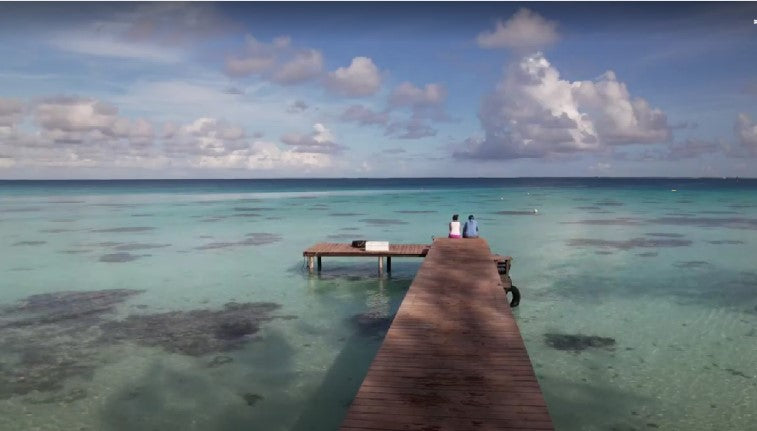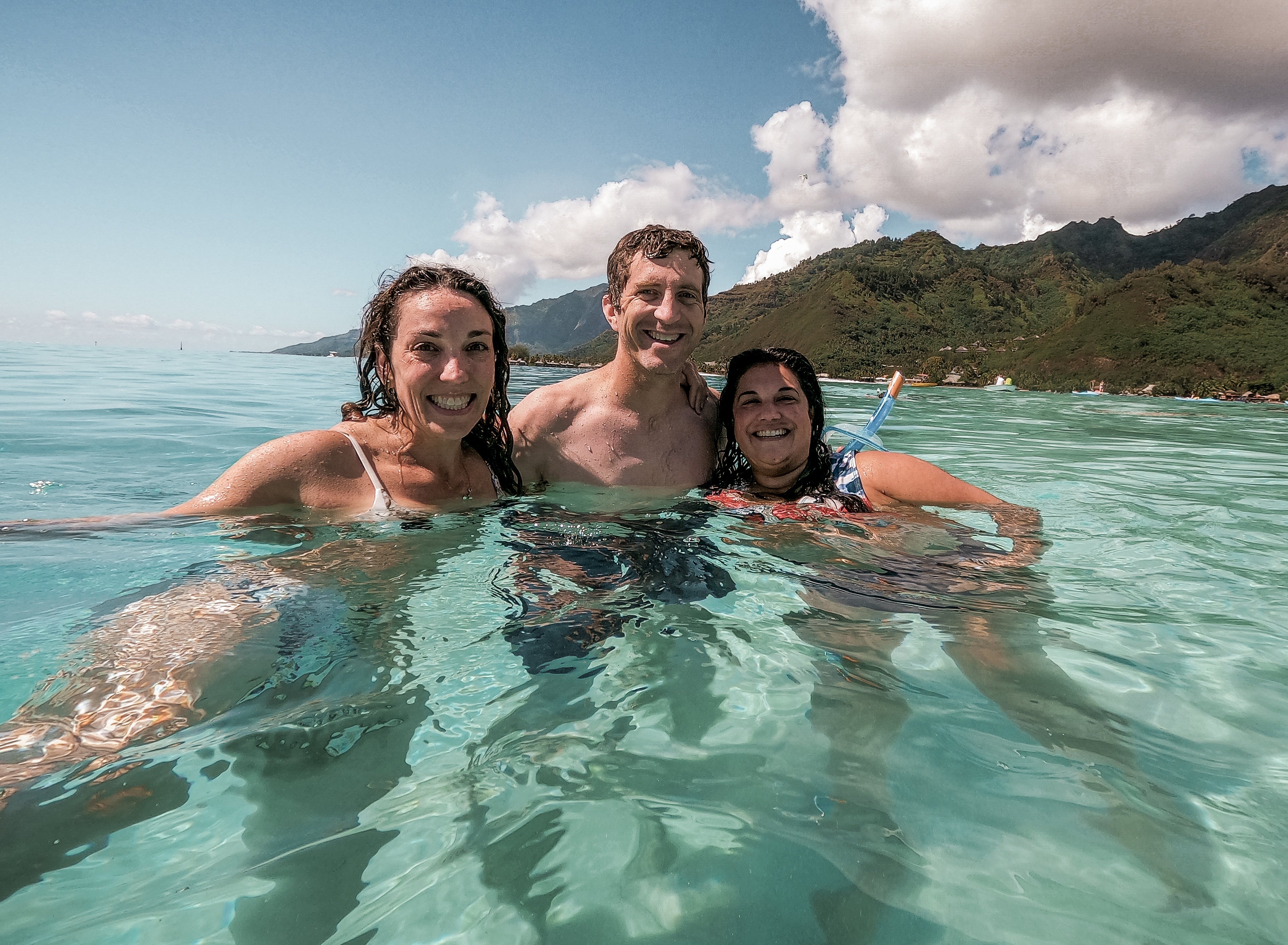Days like today are the inspiration. They’re the food that feeds the dream. And it tastes delicious and I want to gorge myself on it like Thanksgiving leftovers.
I’m at a cement table, situated about 20 feet from the shore, feet and legs dangling in the 80+ degree water of the Fakarava lagoon. Belly full of poisson cru, beer in hand, swimming suit wet from a recent dip. I literally just took my camera and filmed a nurse shark swimming by the table, without even moving. It’s surreal. It feels like the last moment in a movie when everything goes from perfect to nightmare. Yet... the moment continues and you hold like gingerly like a Venetian vase.
Our previous Great Trip in 2008 had no aspirations beyond exploring the world. Like our 40-something lives compared to our 20-something lives, this one is more complex. We have higher standards. We have expectations. We have a 15-year marriage and careers to be managed, not to mention a house, a mortgage and Dublin, our 7-year-old dog. Things are just more complex than last time.
 Kicking off our 2008 Trip in Zimbabwe
Kicking off our 2008 Trip in Zimbabwe
However, there’s one complexity that’s a magnitude above others. It’s Unanchor. This company has, through a crazy twist of Monaco F1 turns, gratefully ended up in our stewardship. It’s fantastic and terrifying all at once. I suppose anything worth doing is a bit scary, but putting the challenge of growing a company on top of the uncertainty of leaving home and heading out on the world is just a lot.
The number of layers at play is overwhelming to consider.
First off, there is the normal business questions, which are difficult enough on their own. What is the product? Who is the audience? Why the hell would anyone actually care about what you’re doing? How to build the social media presence, the marketing machine, the engineering and tech stack, etc. Unanchor deserves nothing more that to have full focus on these critical questions to help build it into a company that can live and breathe to translate love of travel to others.
After the nearly-debilitating questions of what the company should do, there are the overlaying questions of running a company with your partner: division of responsibility, work-life balance, and the crazy overlap of work like with personal life. For instance, suddenly something so mundane as a difference of opinion in a work conversation can become part of your bedtime conversation, which means you’re probably not going to sleep so well that night.

Lastly, there’s the overlap of trying to be global travelers with no set routine or home base to return to. Every routine has been broken, and the new schedules aren’t yet in place, and may never be. Suddenly a 4x4 excursion is only able to be scheduled during your “must-work” time, and you look at each other and need to determine which activity wins the time slot. You can justify it either way, frankly, which makes it even more of an emotional decision than it otherwise would be.
The hopes we have, however, supersede all of these concerns to provide a driving energy. How can we turn our love for travel into something that’s woven into our careers? How do you define success in this? Is it a financial success that provides sufficient income for us? Is it a company of 5+ people helping others fulfill their travel dreams? These definitions of success drive both the amount of energy we put in and the ability to feel satisfied by our efforts. If we’re aiming to support 5 people by 2023, it’s difficult to feel accomplishment if you’ve only built the company to support 3 people, even though it’s a success on its own. It also drives those decisions of whether you take the 4x4 excursion or stay home and work.

So yeah, it feels like if we were juggling with knives on the 2008 trip, we’re juggling chainsaws this time around and, while we’ve improved our juggling skills dramatically, it’s still terrifying to see a roaring Stihl heading towards you.
Fortunately, we each still have two hands, two arms, and are still smiling like the younger-and-dumber earlier version of ourselves.




